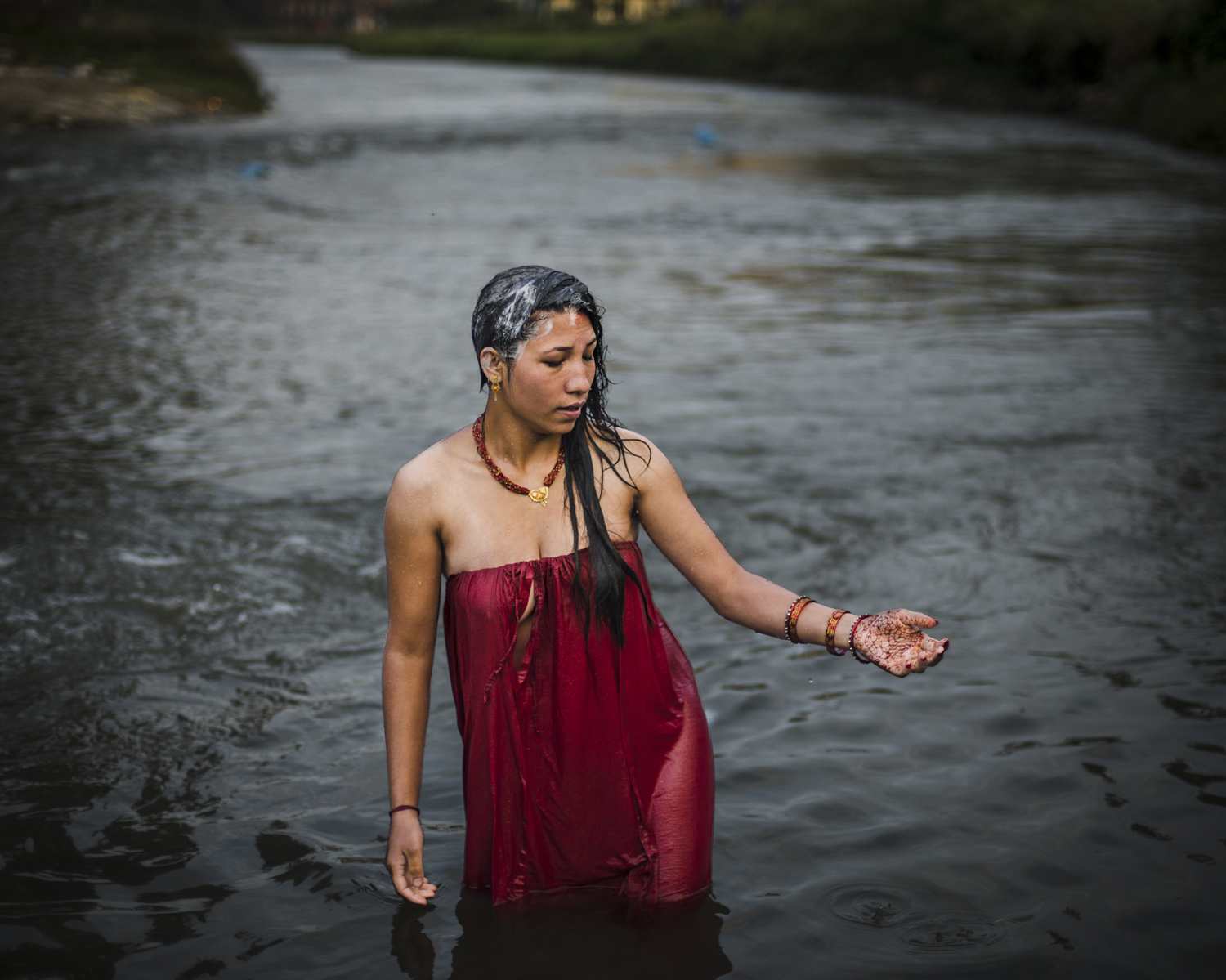
‘Tradition’ is broadly defined as a belief or custom that is passed between generations. It can be cultural, religious or something entirely different. It can be praised and celebrated and adapted over time, or it can be viewed as dated and misunderstood and forced upon people who would otherwise not participate. It can breed sorrow and guilt, fear or even pain. In many cases, it can be or do all of those things.
In some parts of Nepal, it’s Chhaupadi. Girls and women are made to live in makeshift huts while they’re menstruating out of the superstitious reasoning, and a tradition linked to Hinduism, that their blood is considered impure. The country’s top court ruled the practice illegal in 2005, but the decision hasn’t trickled over to the ex-Maoist district of Surkhet and Achham in the far west, only reachable by foot, where it began and remains widely observed.
Documentary photographer Poulomi Basu, currently based in New Delhi, witnessed the ritual firsthand. Last fall, after pairing up with the charity WaterAid, Basu, 31, made the two-day journey from Nepal’s capital, Kathmandu, to photograph girls and women subjected to Chhaupadi. Alongside a female community mobilizer, who made introductions and explained the project to those interested, Basu got to work.
Each girl and woman she met endured unique circumstances. They were banned from socializing and sharing food, forced away from public space and barred from using the main water source. Basu said some of them have been sexually assaulted in, or abducted from, the huts and other have died from asphyxiation or fire when trying to ward off the cold.
Basu met one girl who lived in a hut filled with books, trying to study in an environment that left her completely exposed. Another was in such pain that she had to crawl to the toilet outside. When it was time to eat, “her sister came and threw the food at her from a great distance.”
In one instance, Basu witnessed a traditional healer beating a girl in front of two dozen men. There was little she could do. “[This tradition] has an extremely high impact on women’s physical and mental health,” Basu tells TIME. “Their self-esteem is completely crushed.”
The way most communities in that area see it, breaking with tradition would bring bad luck. Some believe menstruating women could attract snakes if they entered someone’s house, or infuriate the gods if allowed inside a temple. “A menstruating woman is seen as someone really powerful and someone to be feared and shunned,” Basu explains. “They are untouchables.”
Traditions like these aren’t just found in remote lands anymore. In Kathmandu, during the Rishi Panchami festival, women venture out often at night to bathe themselves in animal dung and urine to “wash away”—and atone for—sins committed during menstruation out of the fear she will otherwise be reborn as a prostitute. “It’s the same in the city and the villages,” Basu says. “It’s just done in two different ways.”
Basu, who recently joined VII Photo’s mentor program, says change is coming slowly thanks to technology and school programs. But Chhaupadi is so ingrained in life there that female hygiene campaigns and government engagement won’t cut it in the long-term, she says. It’s a nationwide commitment to education at the community level—lessons for girls about their rights and lessons for boys so menstruation is not seen as taboo—that will have the most effect.
“Change can only come to these places once you make women act on it, when women become the main facilitators of change, when they have the empowerment and position to be able to enact it.”
Poulomi Basu is an award-winning documentary photographer based between India and the U.K.
Andrew Katz is a homepage editor at TIME and reporter covering international affairs. Follow him on Twitter @katz.
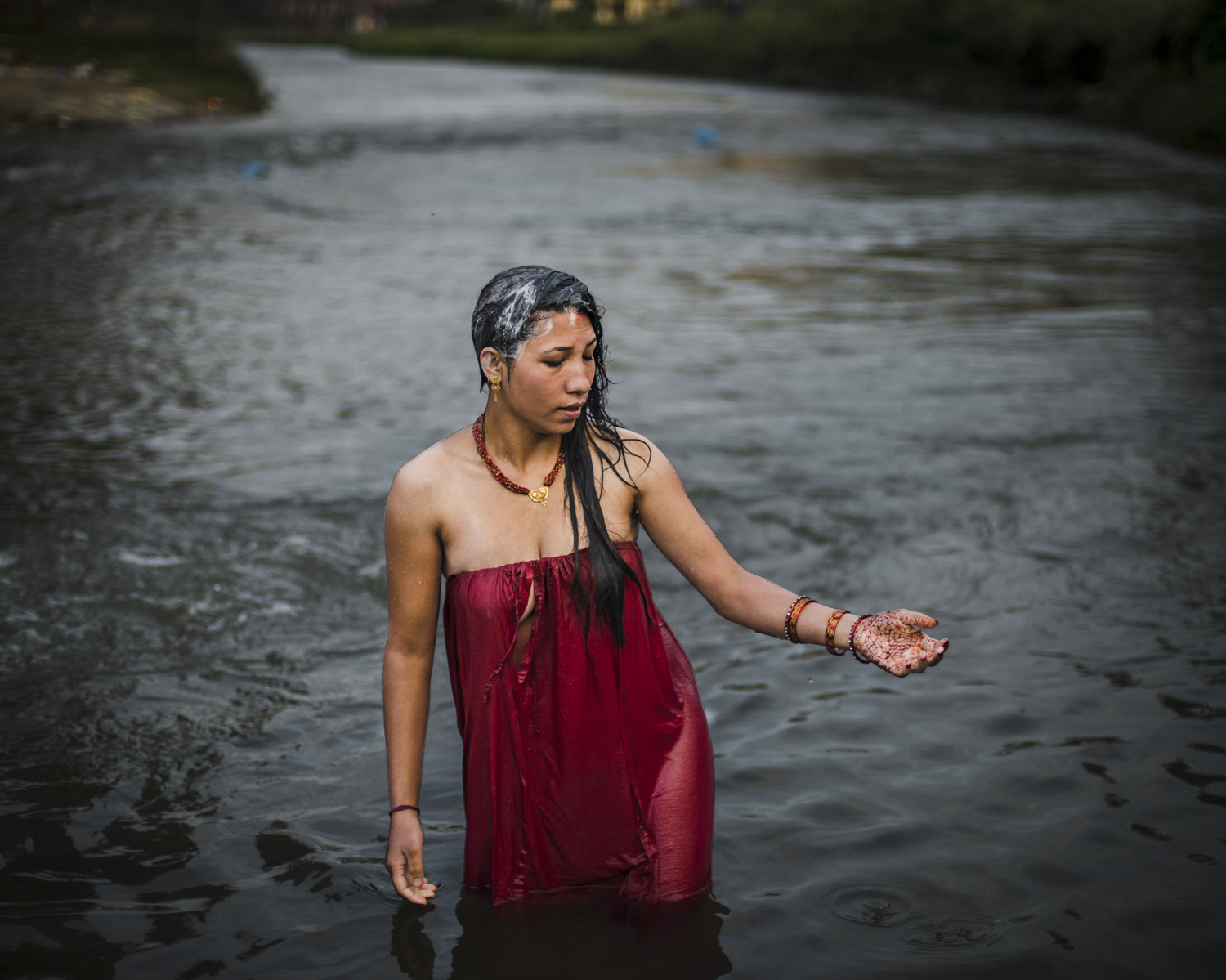
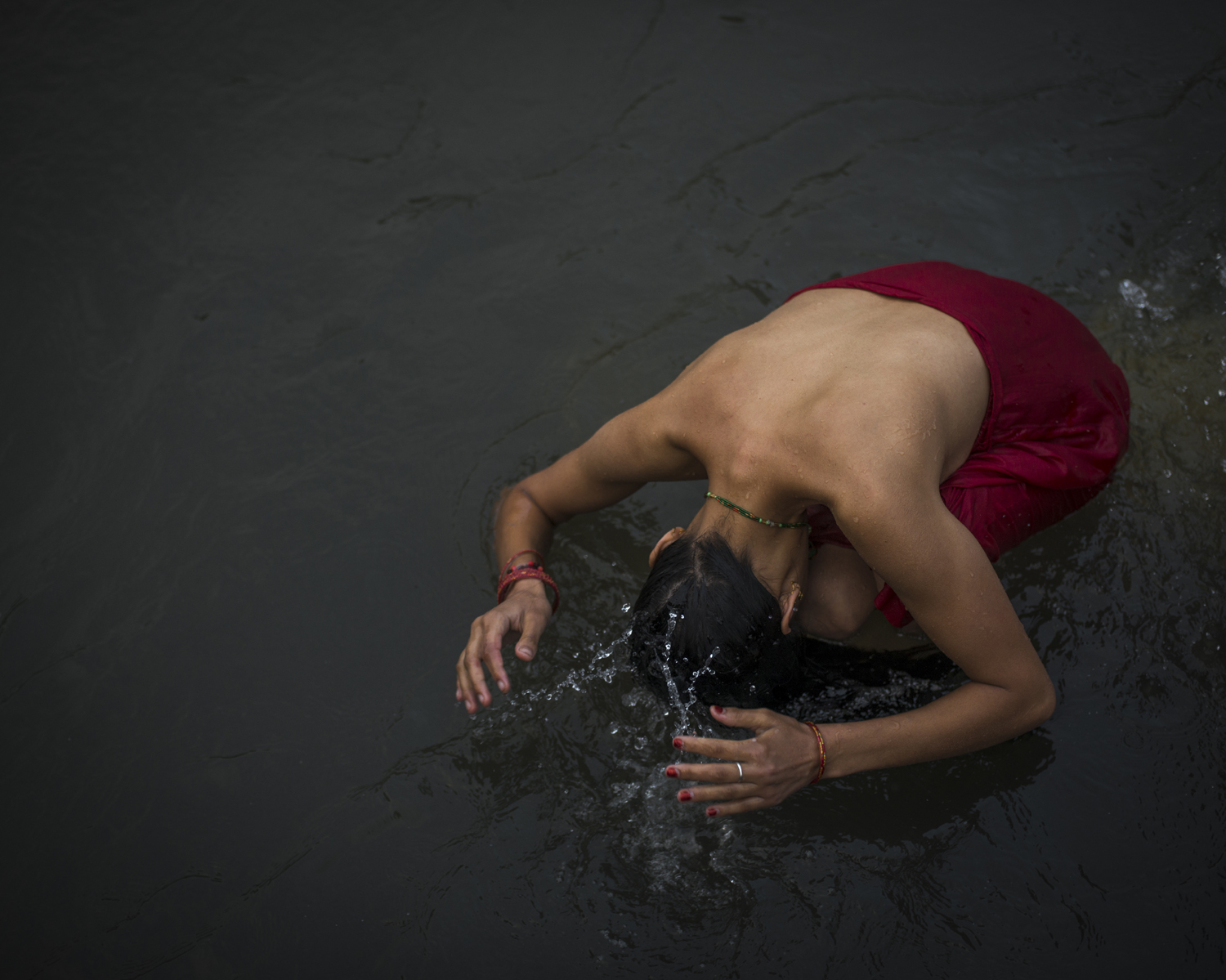
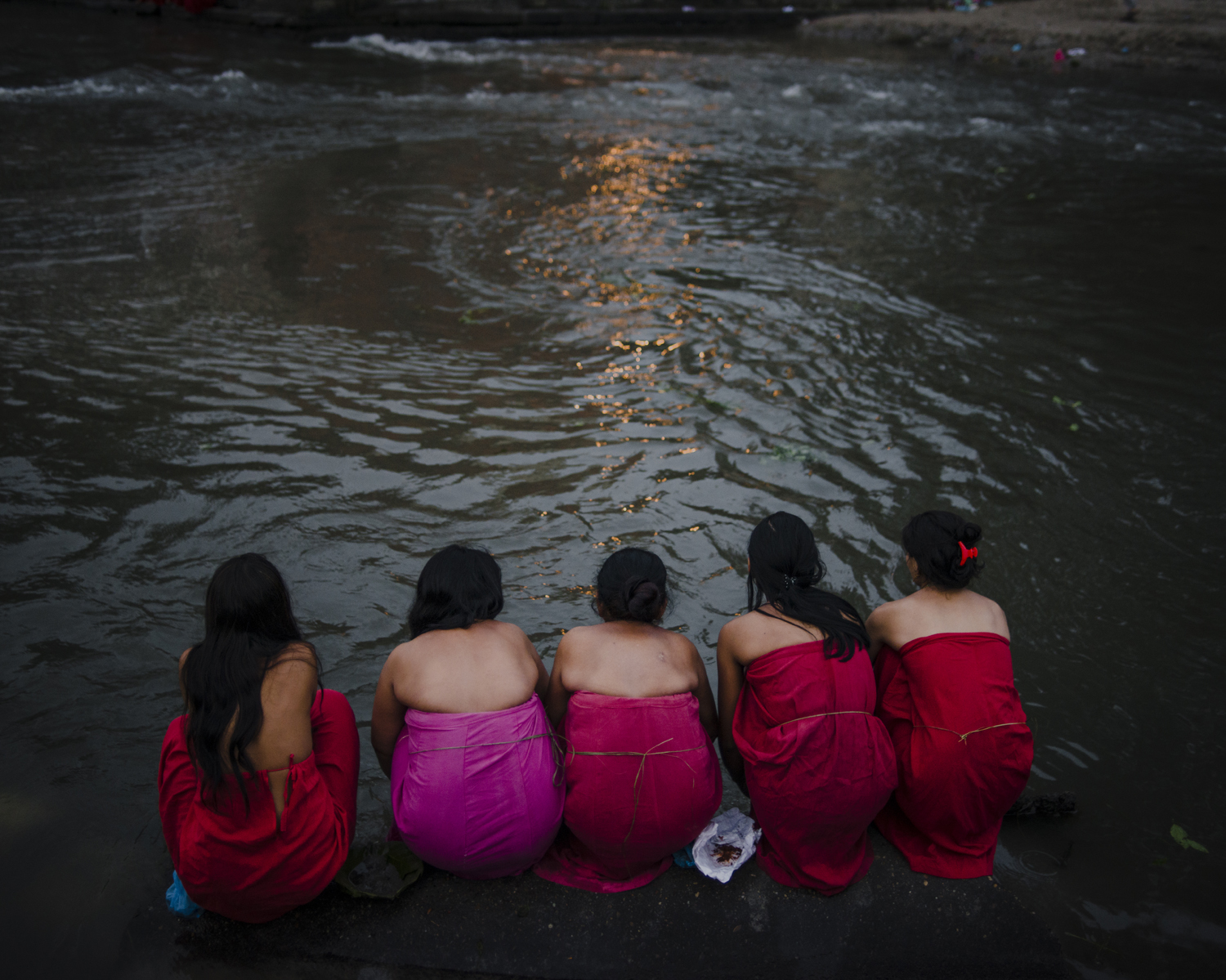
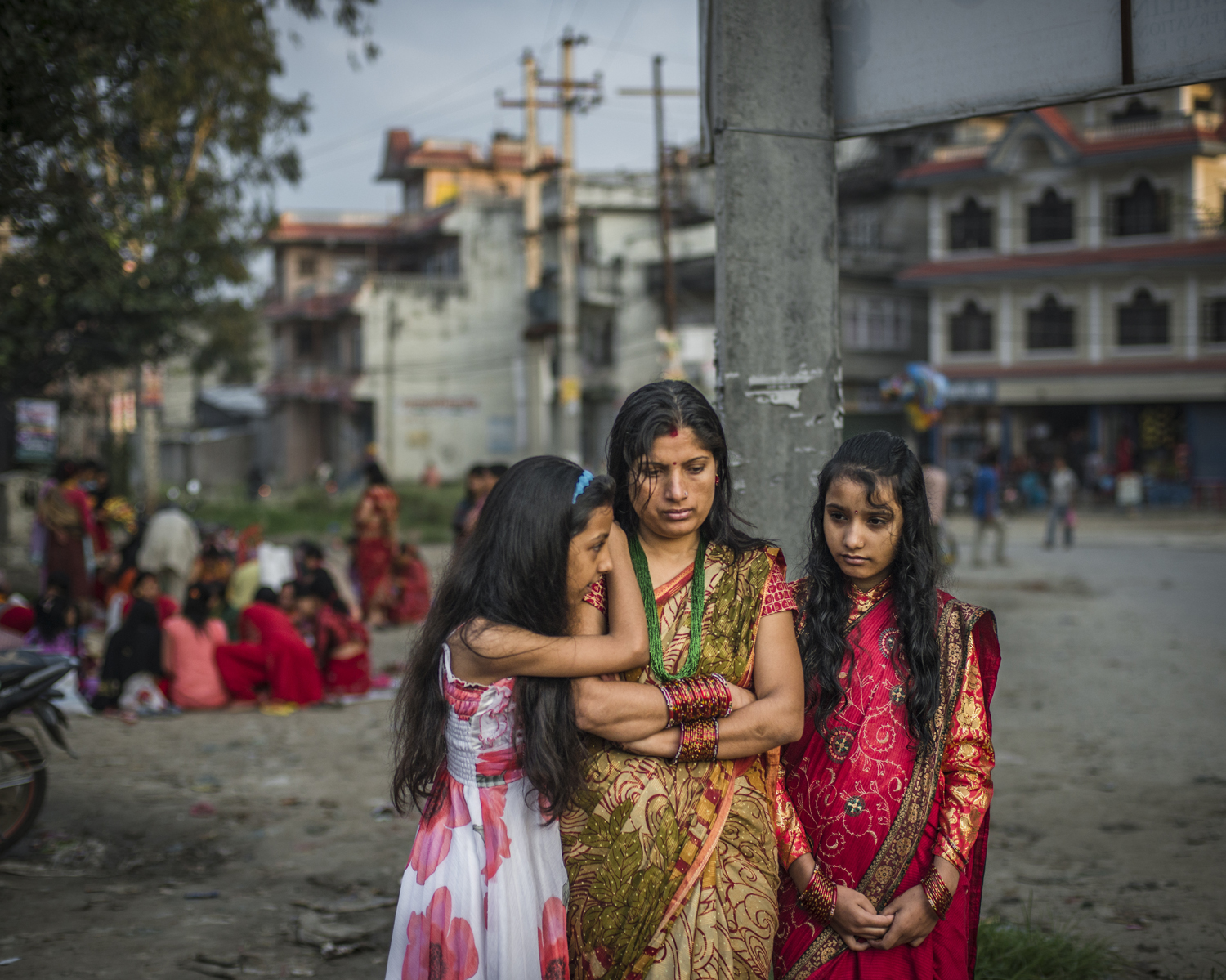
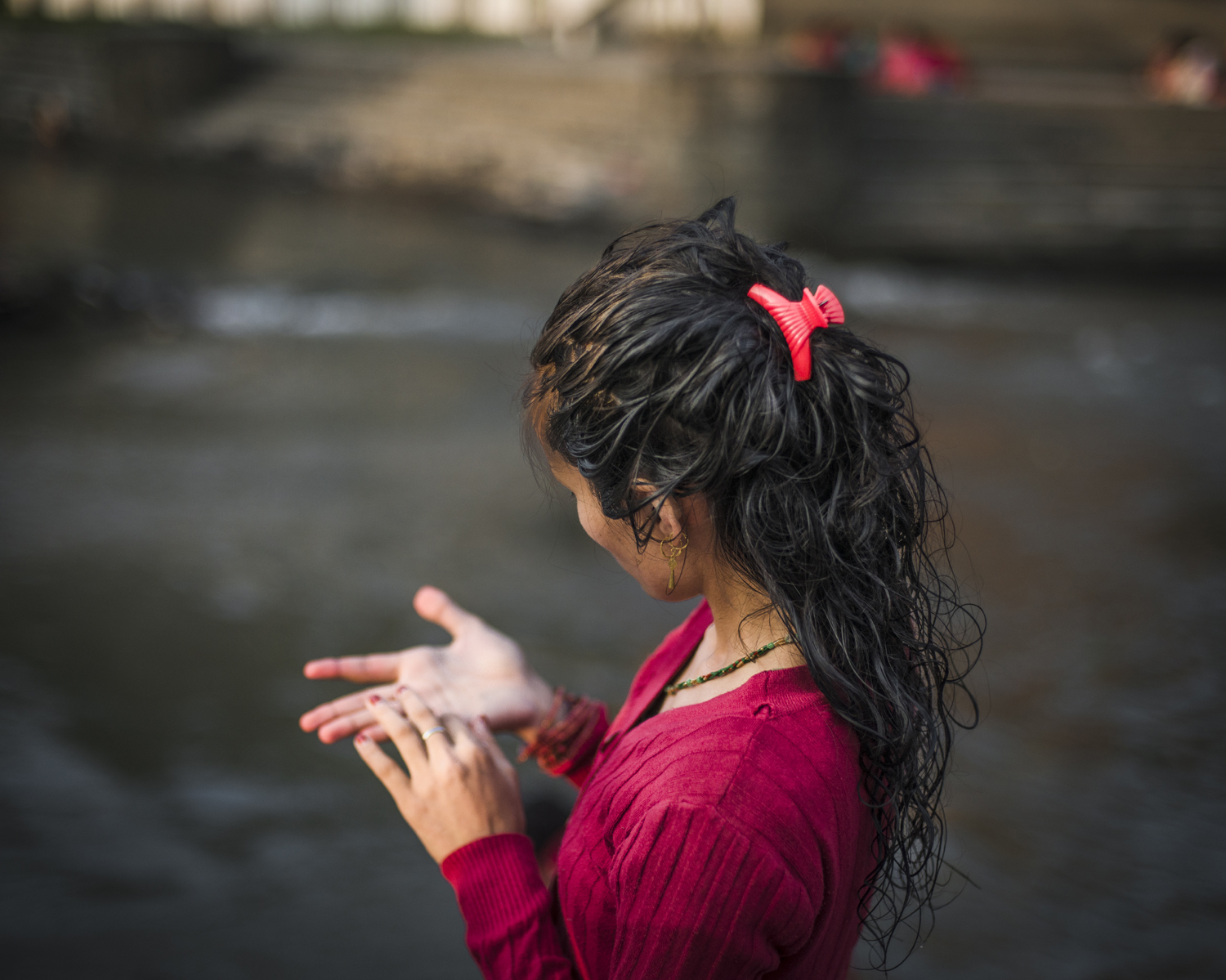
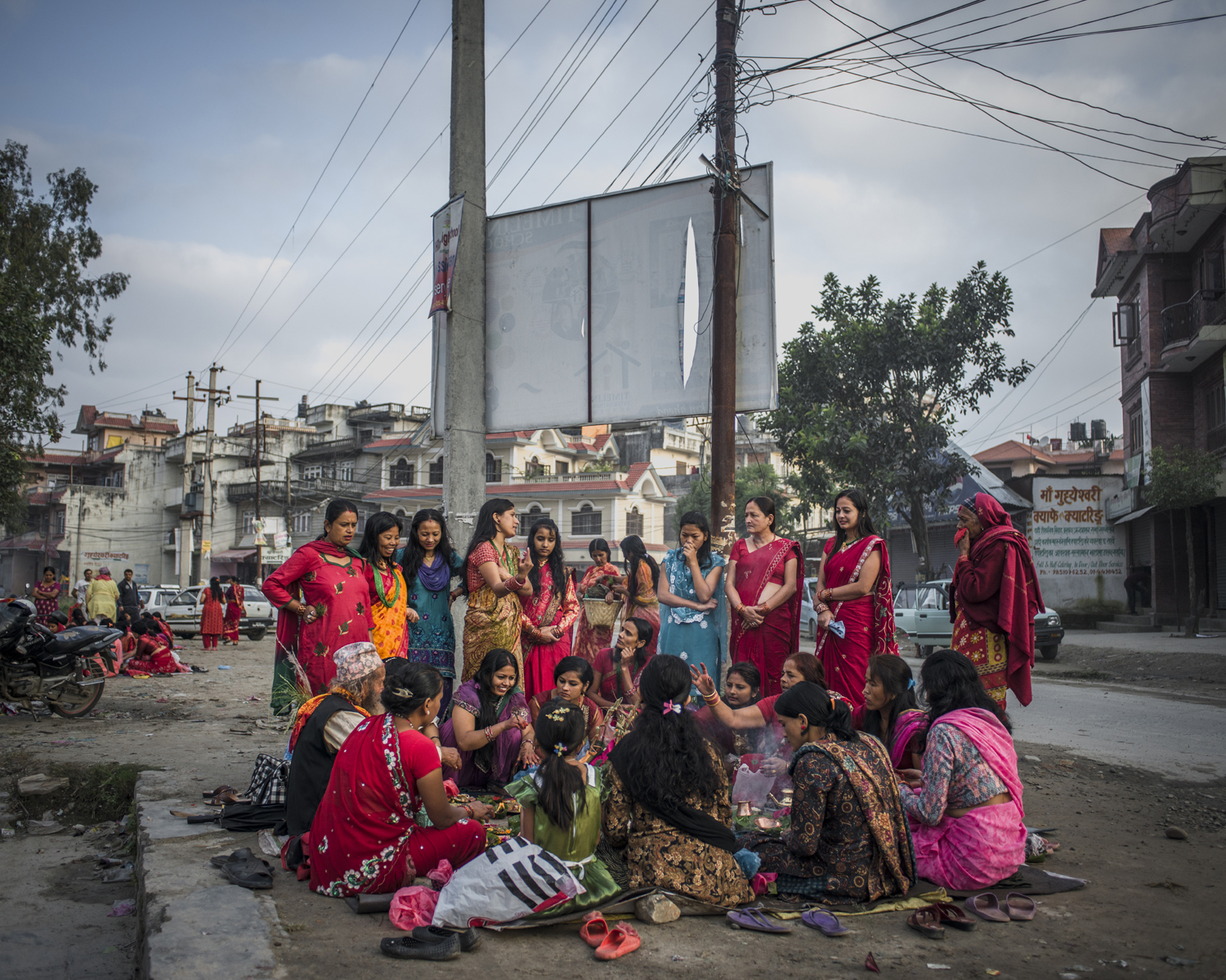
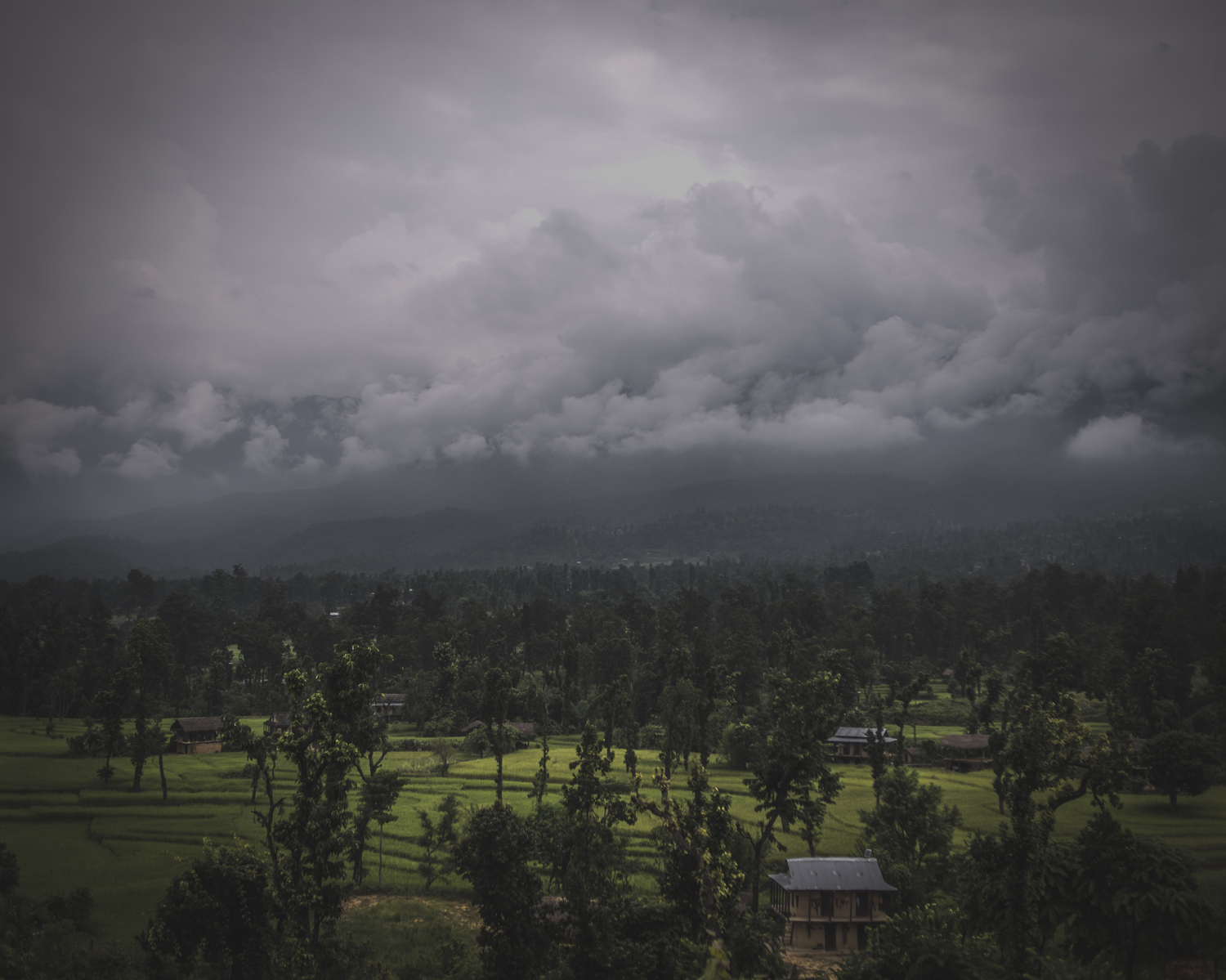
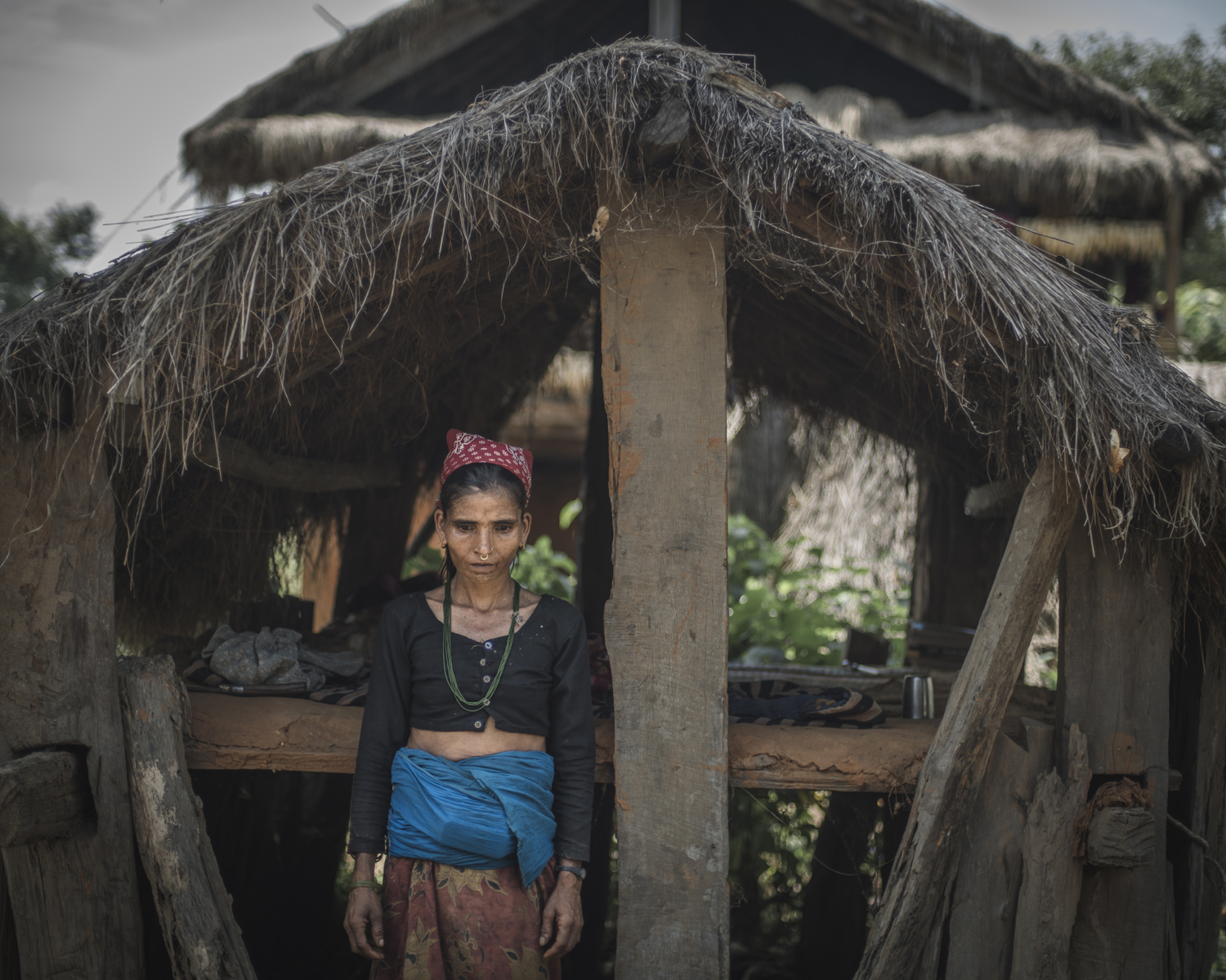
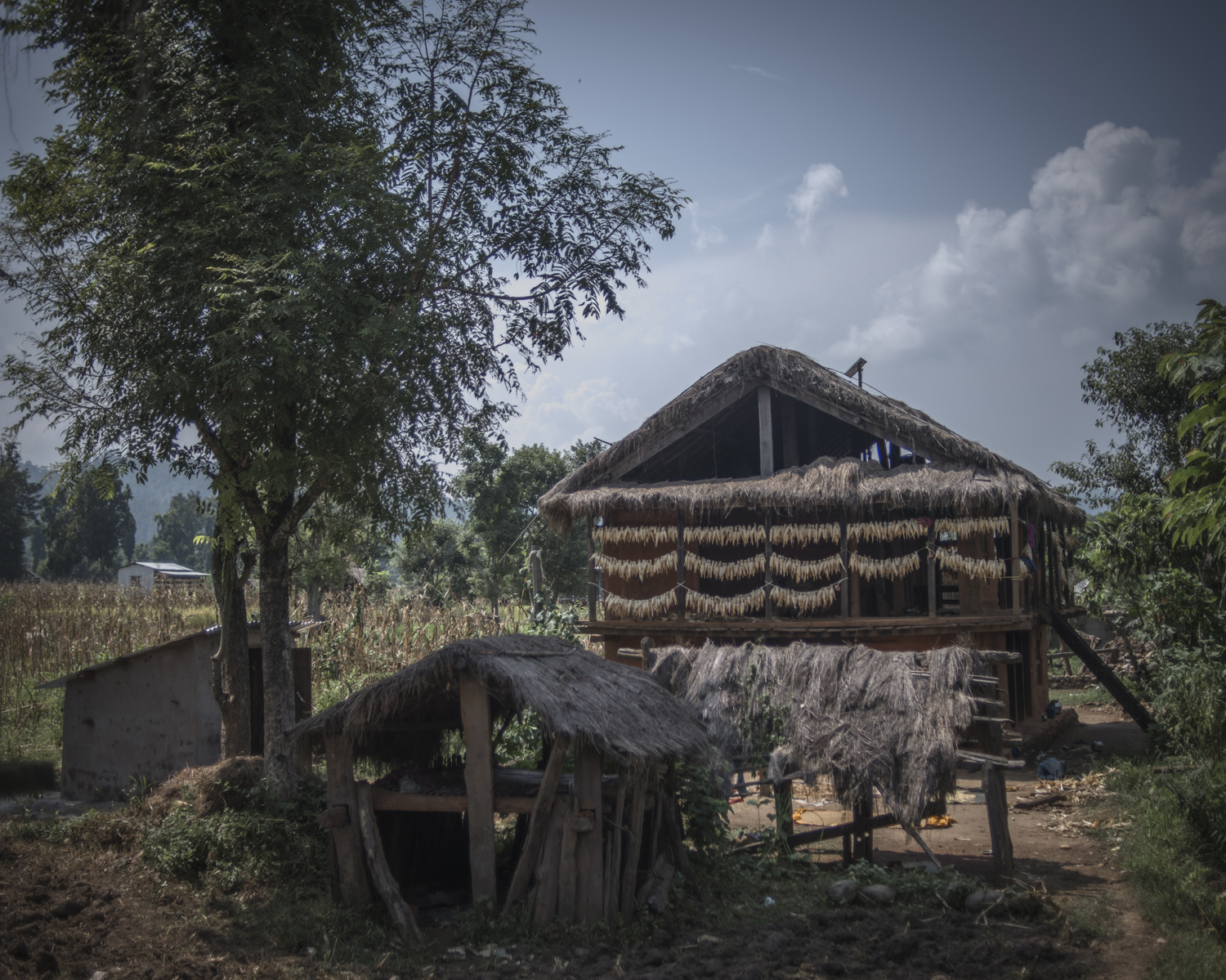
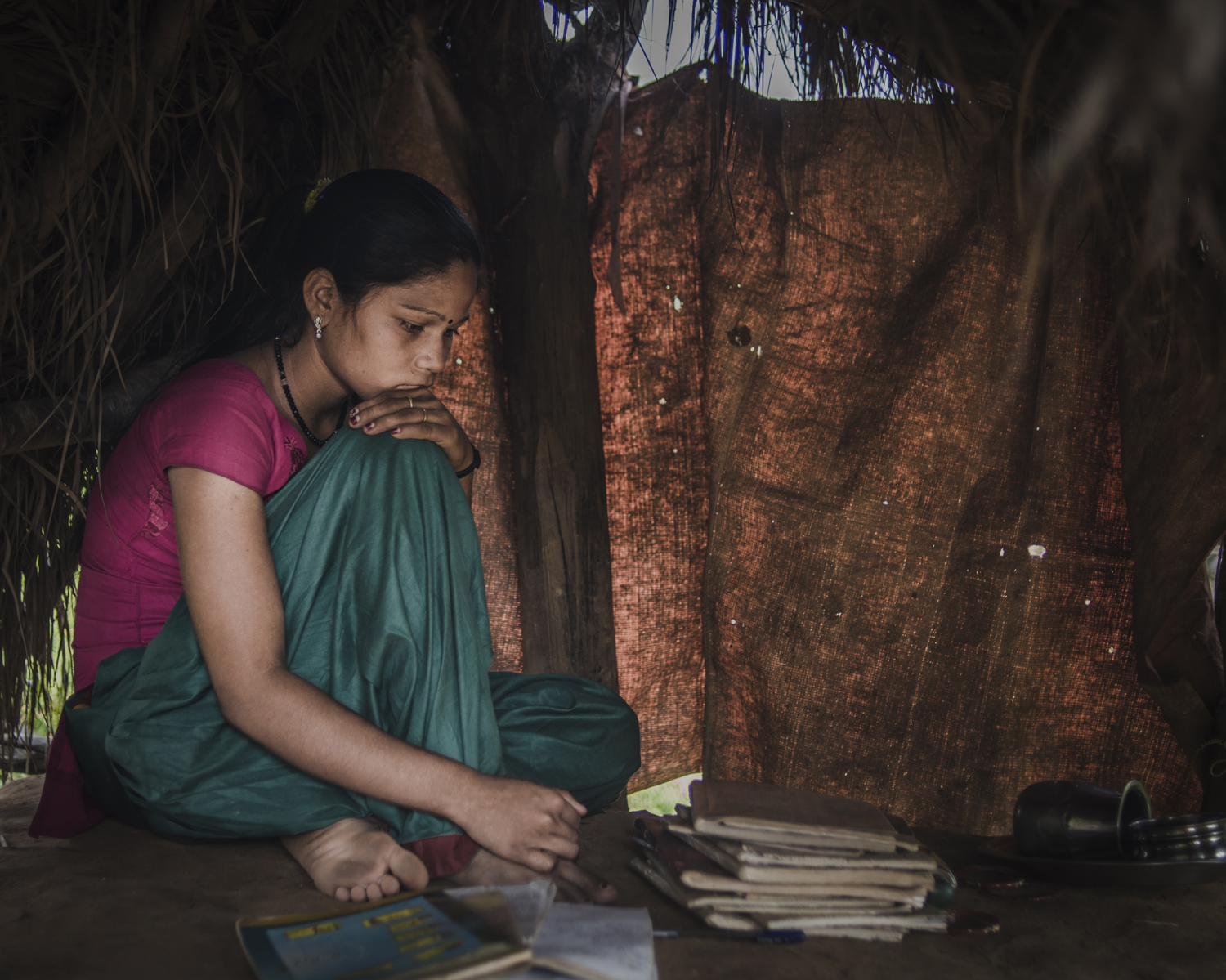
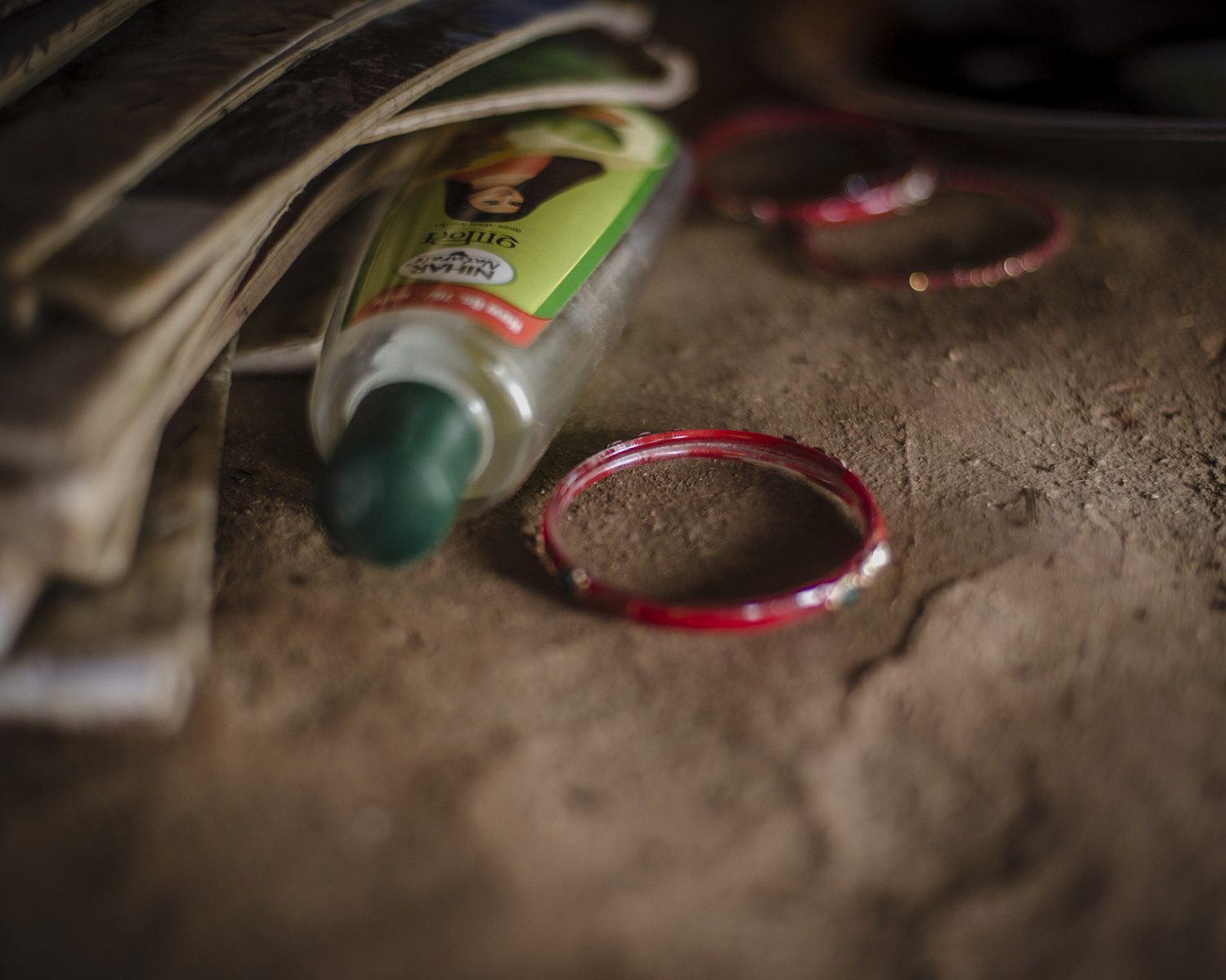
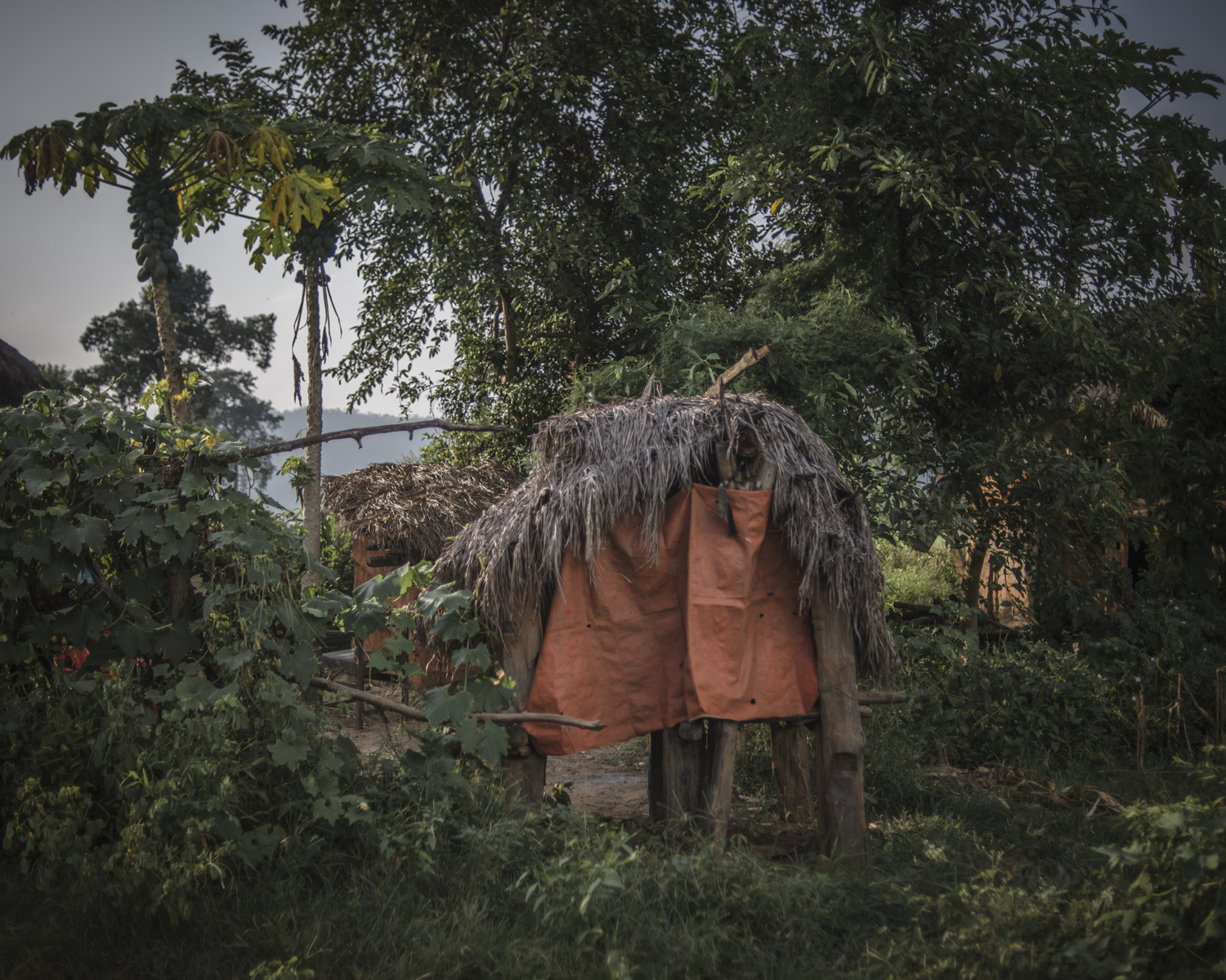
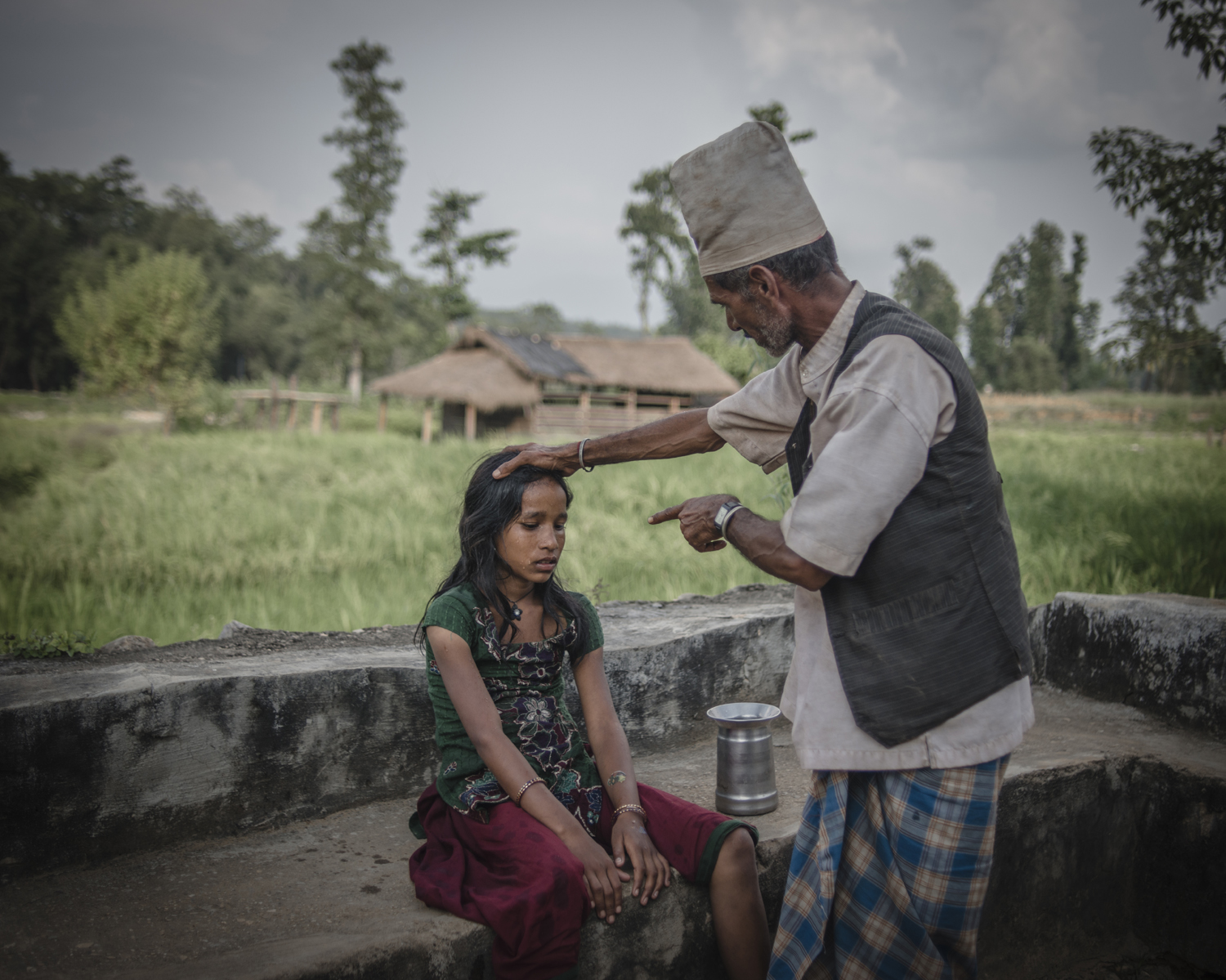
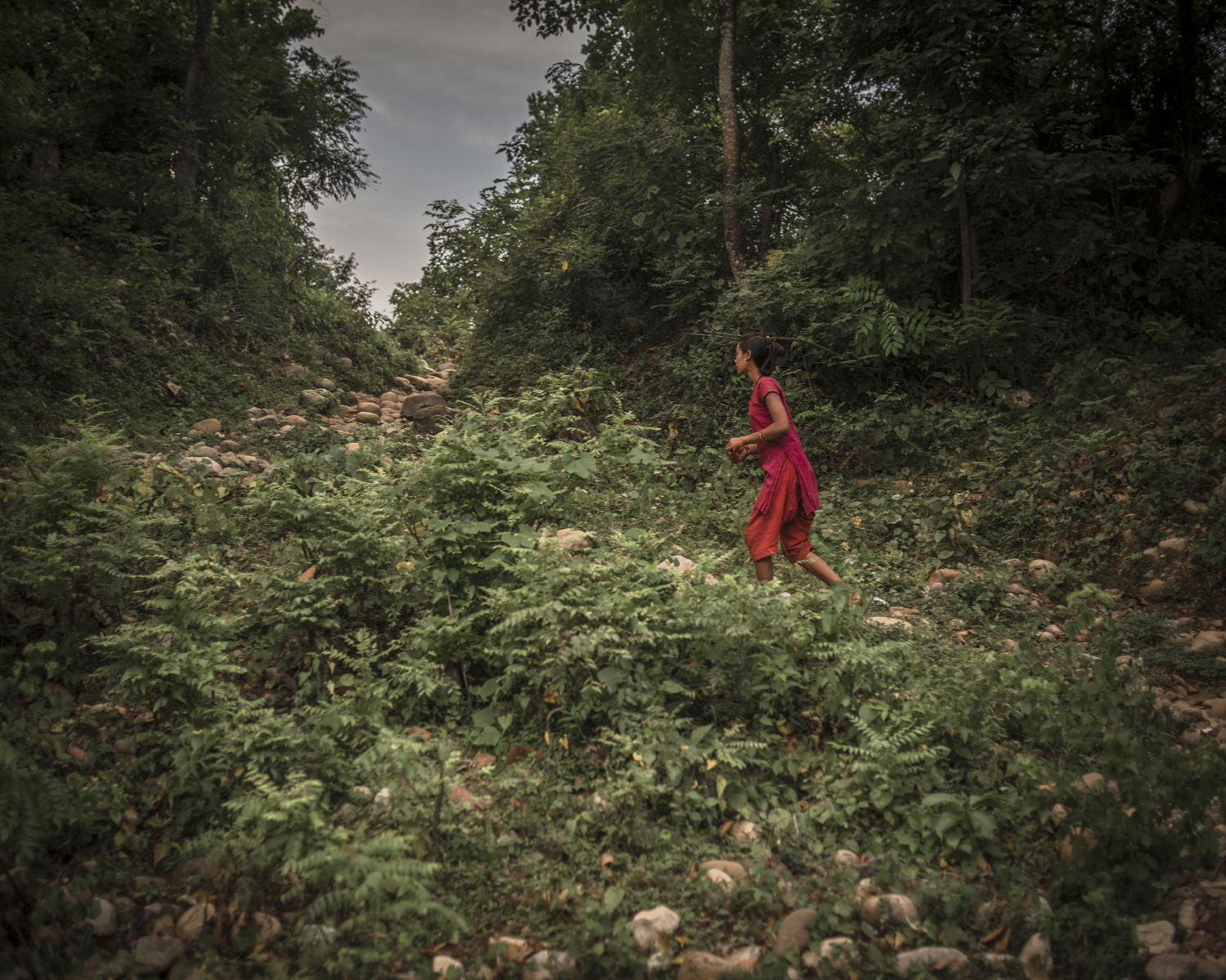
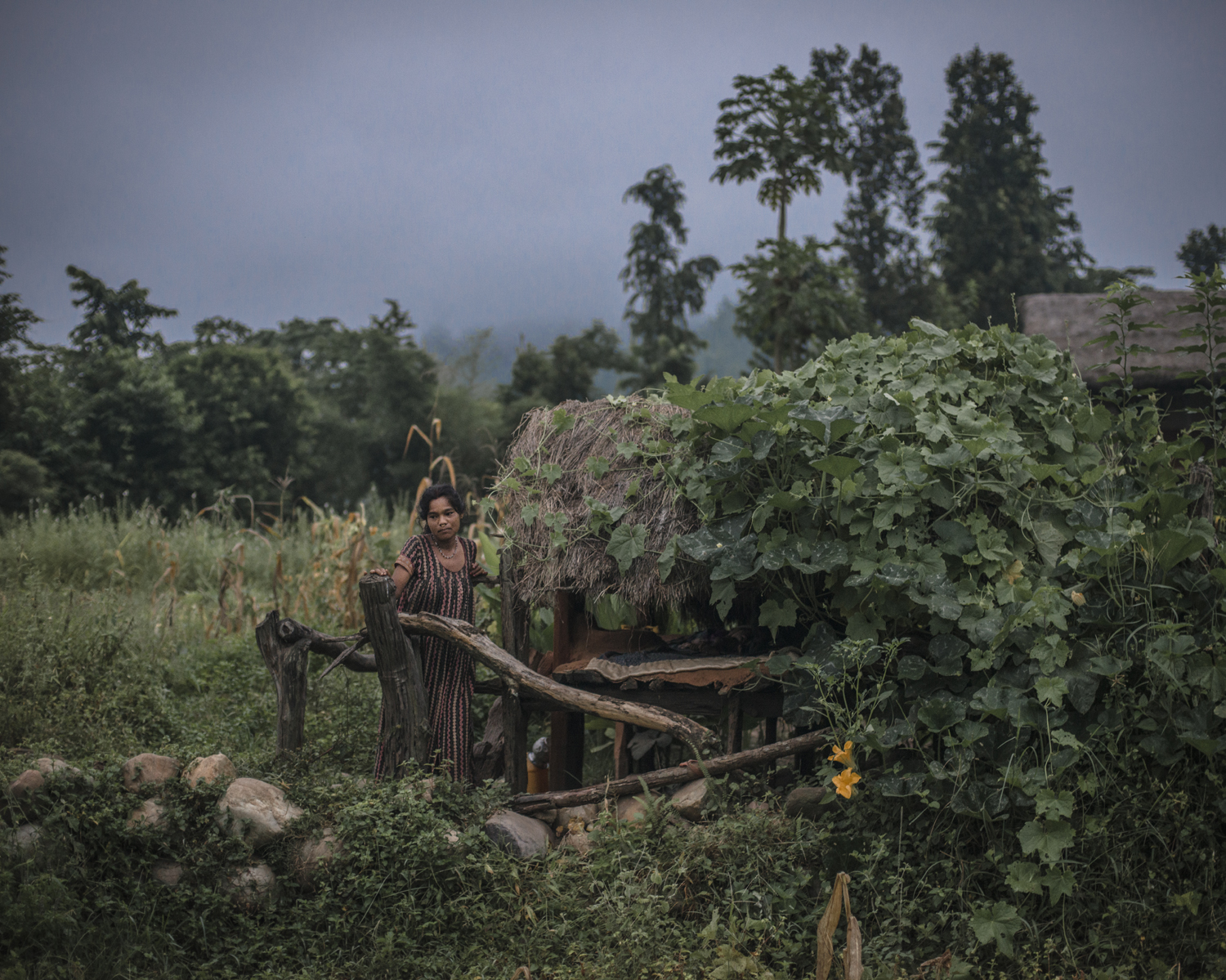
![Poulomi Basu 21 Mangu Bika, 14. “I was in Gujarat in India working during my first year of menstruation. I didn’t observe chaupadi there. Things are different here.”"The first time I went into a chaupadi I was scared of snakes. But now, more than snakes, I am scared of men; I am scared of getting kidnapped. I am really worried about what will happen to me after marriage. I want to grow up and be a teacher because I like going to school. Because when we go to school, we all sit together and their are no rules there or any discrimnation against the menstruating woman."Chandra Tiruva, 34, and her child, Madan, 2, share the chaupadi with Mangu. "It is the traditional belief that our 'kul devtaa' [house god] will be angered, so I was sent to chaupadi. I don't like being here but there is a lot of force. My mother in law forces me, but what can I do. She looks after my other three children during this period. But my mother in law even makes my two year old child observe chaupadi just because he sleeps with me."Surkhet district, Nepal](https://api.time.com/wp-content/uploads/2014/08/poulomi-basu-21.jpg?quality=75&w=2400)
![Poulomi Basu 22 Mangu Bika, 14. “I was in Gujarat in India working during my first year of menstruation. I didn’t observe chaupadi there. Things are different here.”"The first time I went into a chaupadi I was scared of snakes. But now, more than snakes, I am scared of men; I am scared of getting kidnapped. I am really worried about what will happen to me after marriage. I want to grow up and be a teacher because I like going to school. Because when we go to school, we all sit together and their are no rules there or any discrimnation against the menstruating woman."Chandra Tiruva, 34, and her child, Madan, 2, share the chaupadi with Mangu. "It is the traditional belief that our 'kul devtaa' [house god] will be angered, so I was sent to chaupadi. I don't like being here but there is a lot of force. My mother in law forces me, but what can I do. She looks after my other three children during this period. But my mother in law even makes my two year old child observe chaupadi just because he sleeps with me."Surkhet district, Nepal](https://api.time.com/wp-content/uploads/2014/08/poulomi-basu-22.jpg?quality=75&w=2400)
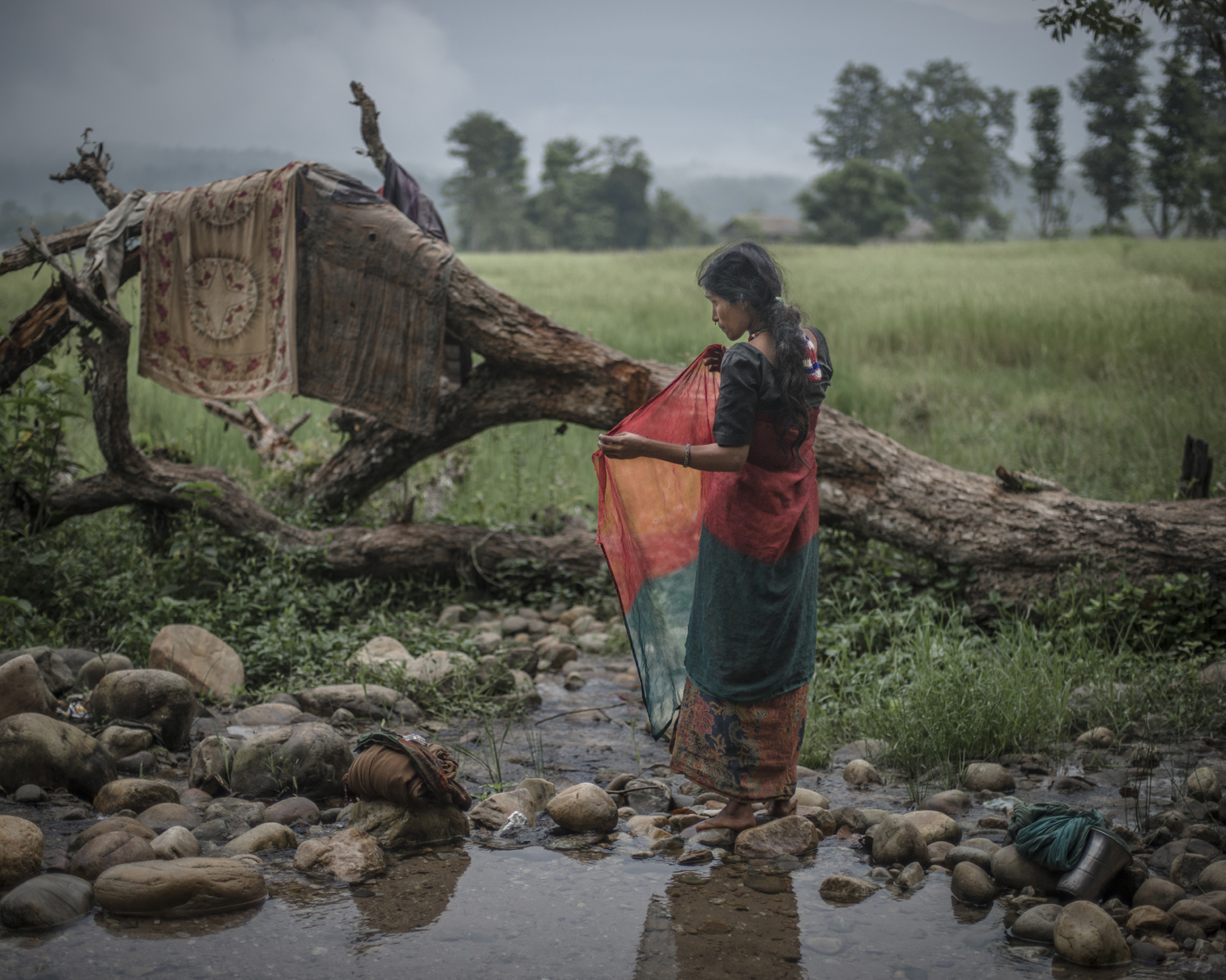
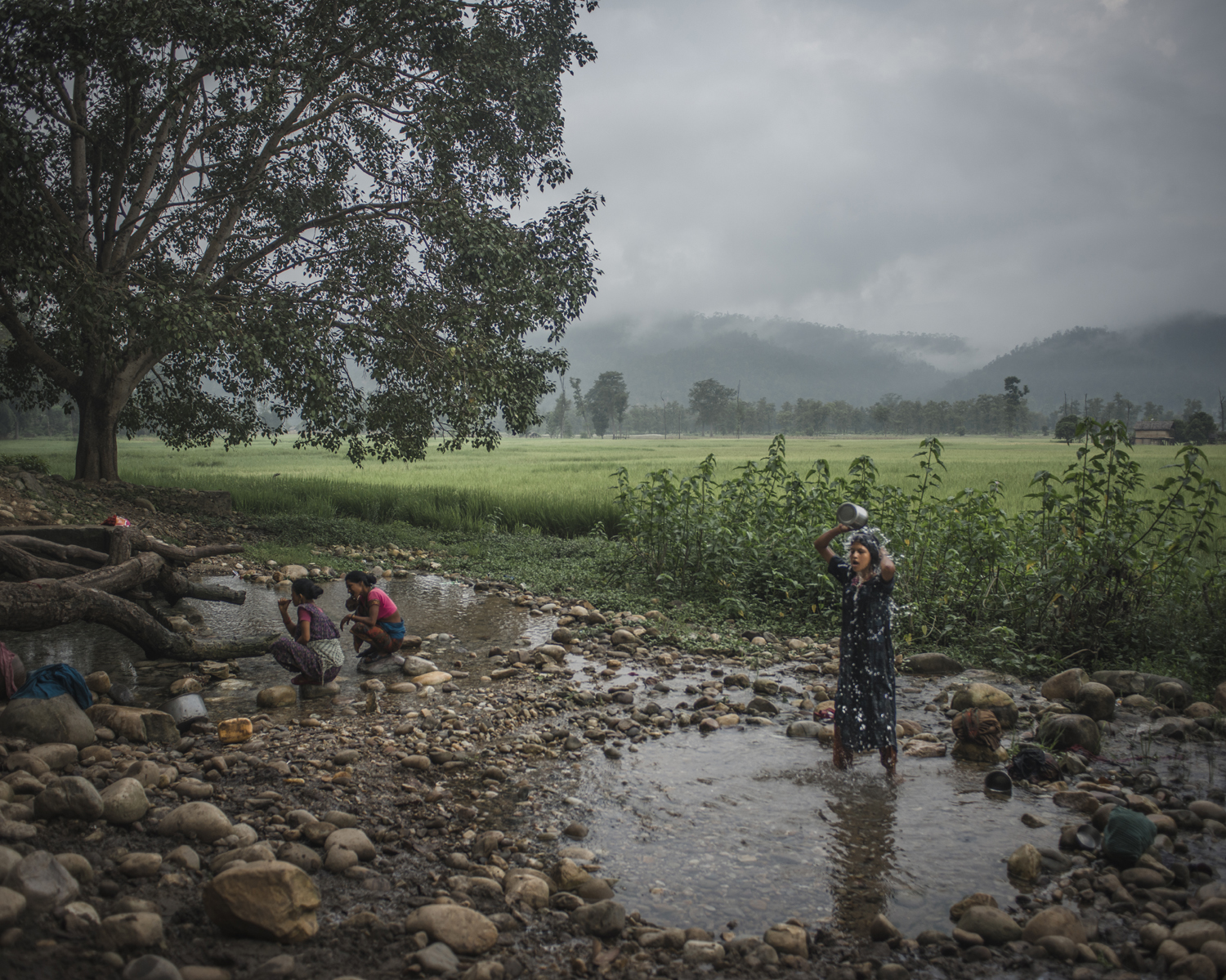
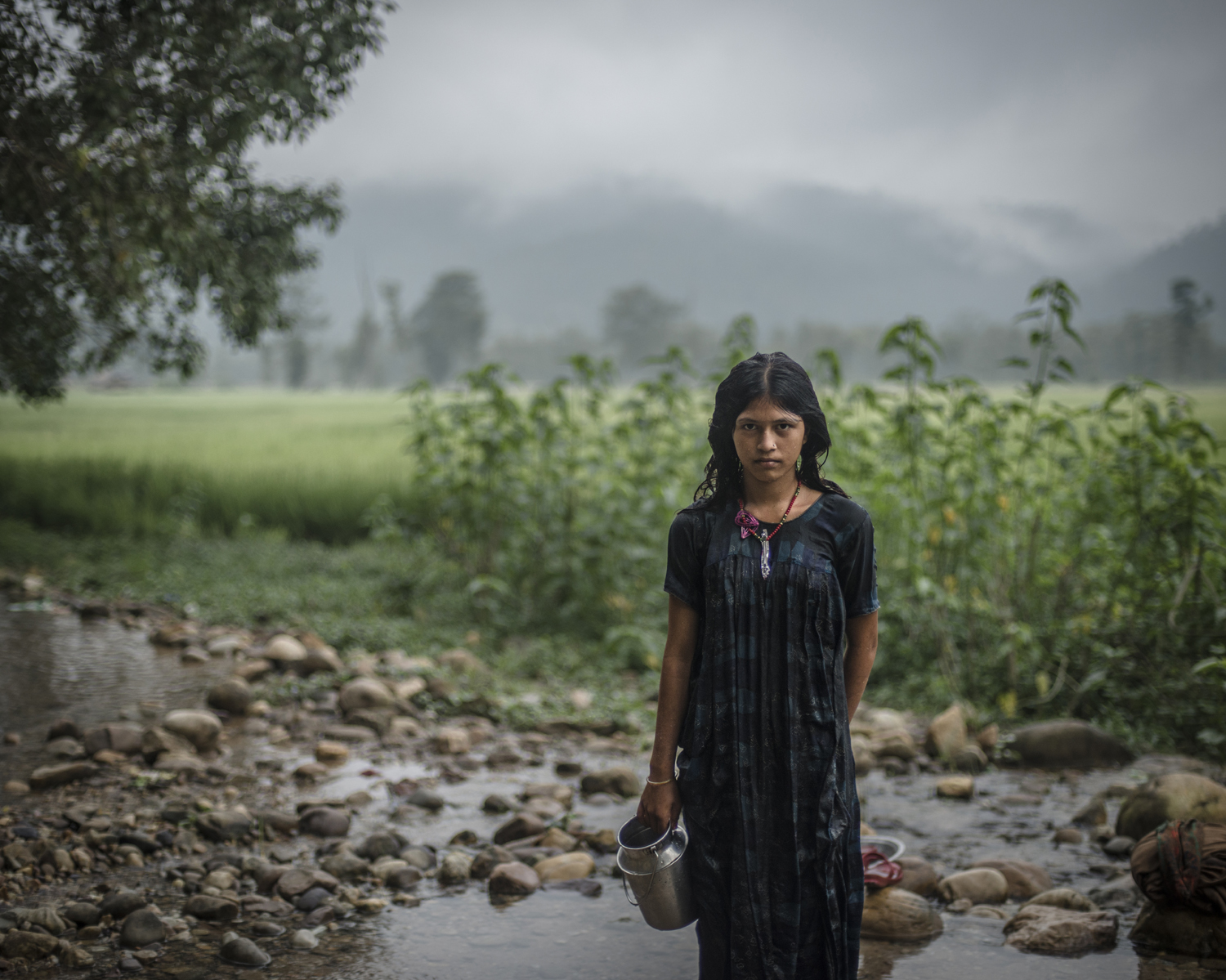
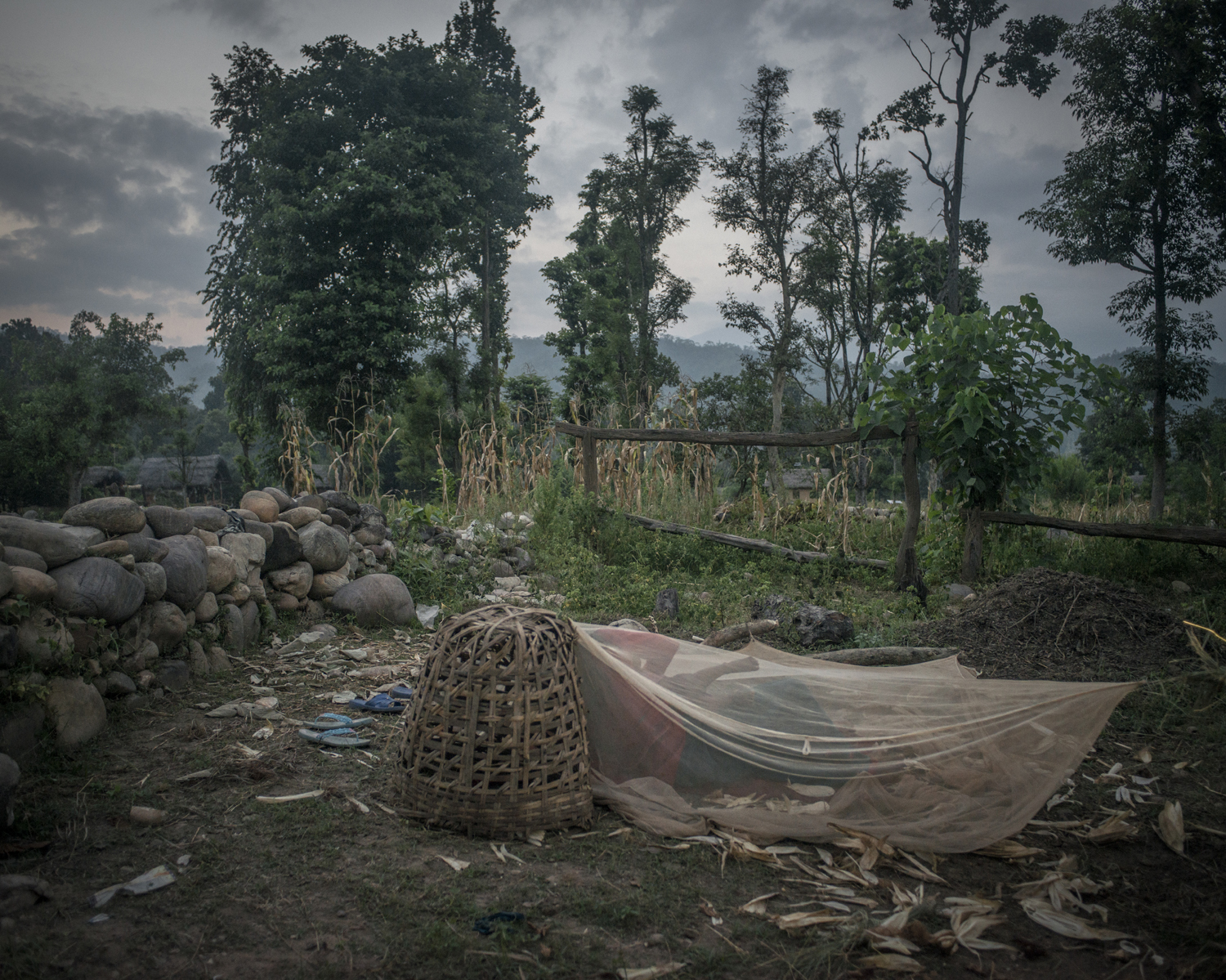
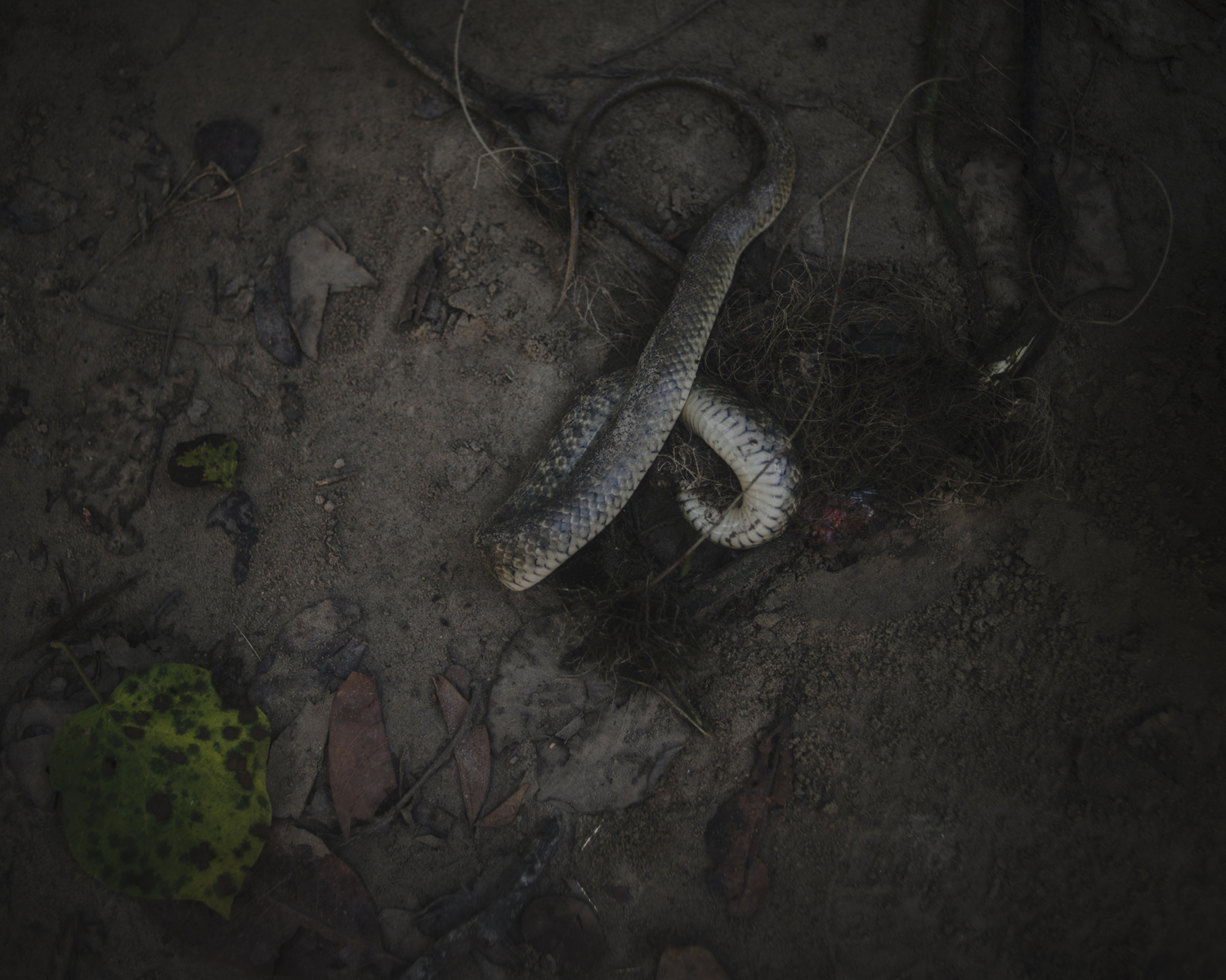
More Must-Reads from TIME
- Cybersecurity Experts Are Sounding the Alarm on DOGE
- Meet the 2025 Women of the Year
- The Harsh Truth About Disability Inclusion
- Why Do More Young Adults Have Cancer?
- Colman Domingo Leads With Radical Love
- How to Get Better at Doing Things Alone
- Michelle Zauner Stares Down the Darkness
Contact us at letters@time.com